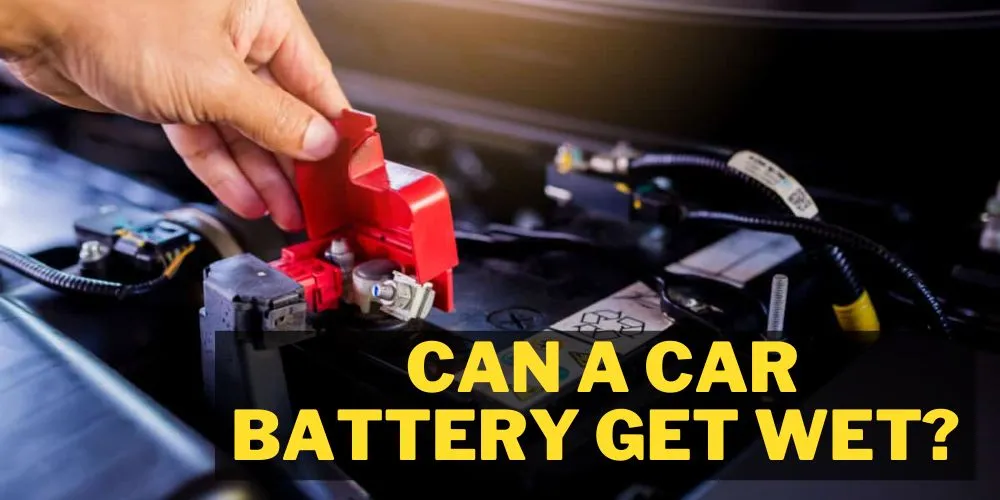Whenever you notice steam fumes emitting from your car’s bonnet, the first and foremost thing you should do is pull it aside from the road. Ignoring it may lead to exploding the pistons and gripped valves, engine breakage, and other damage.
It may put a big hole in your wallet due to high repair costs. Moreover, it may be fatal to you and other co-passengers too. But, do you know how long can a car overheat before damage?
Though it depends on the car type and underlying reasons, but still it won’t take more than a few seconds to start the damaging process on the case of overheating. So we must act quick when need be.
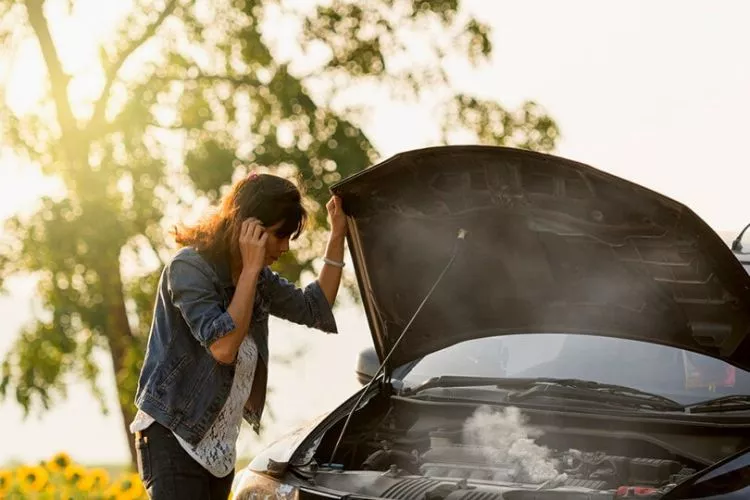
Contents
How Long Can a Car Overheat Before Damage?
An overheated car won’t delay damaging your engine. As time slips, the increase in heat starts ruining your car’s interior.
You will be wrong if you think it will take time for the heat to start damaging your vehicle. In a real scenario, it just takes a few seconds to damage. Pulling over your car to the side and allowing it to cool down is the first action you must go for.
How do I know if my engine is damaged from overheating?
The engine operates at high temperatures, ranging from 195 degrees F to 220 degrees F. It may vary from vehicle to vehicle. Overheating happens when the temperature surpasses the usual temperature. You may not notice initially, but a few symptoms will help you to identify the situation.
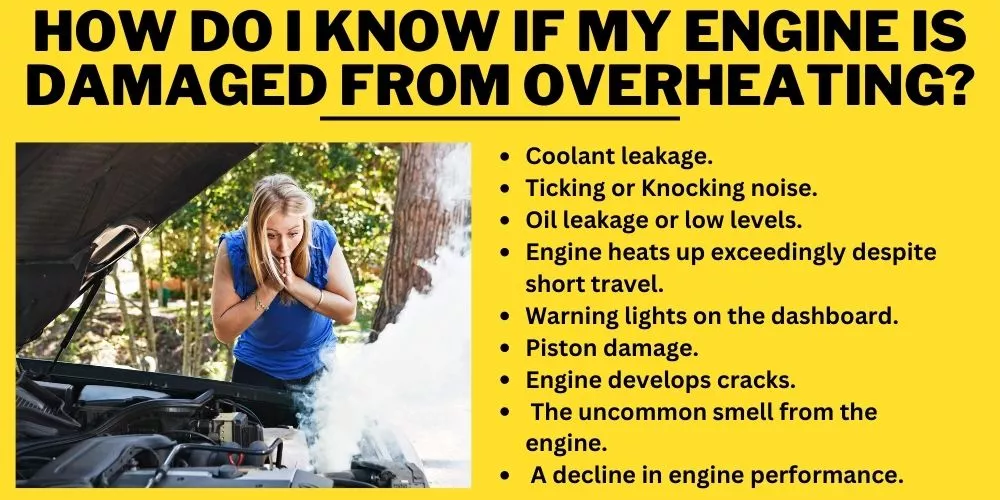
Coolant leakage
A leaking coolant is a direct sign of engine overheating. Check for your coolant levels, whenever you notice any coolant leakage. Coolant levels not up to the mark lead to temperature irregularities. If you are aware of the coolant color, it will be easy for you to identify the problem. Else let your professional mechanic check the issue.
Ticking or Knocking noise
A ticking or knocking noise from your engine is another sign of engine overheating. Poor lubrication results in such noises that ultimately lead to overheating. Heat more than required makes the oil thinner, resulting in inadequate lubrication, increasing wear and tear, and causing damage.
Oil leakage or low levels
Low oil levels due to incorrect fill or leakage may result in overheating of the engine. As important as the oil viscosity is the oil quantity. A lesser oil won’t suffice to lubricate the parts ideally.
Engine heats up exceedingly despite short travel
An excessively heated engine after a short trip is something to worry about. It indicates something is wrong with the cooling system, resulting in the temperature going haywire.
Warning lights on the dashboard or Gauge needle pointing to overheating
The gauge needle entering the red zone is a sign of engine overheating. In addition, the warning lights on your dashboard may flash, which indicates problems with the engine. Immediately stop the vehicle and check the issue once the car cools down. Ideally, help from a professional mechanic is recommended.
Piston damage
An overheated engine may result in piston rings or pistons breaking or distorting. If this happens, it’s going to take considerable time and money for the repairs.
Engine develops cracks
An overheating of the engine may reach a point where the engine and its components can no longer endure the heat and develop cracks. It will be a severe disaster, compelling you to replace the cracked engine with a new one.
The uncommon smell from the engine
Any unusual smell emanating from the engine, such as rubber burning, hot metal, oil, etc., is due to overheating.
A decline in engine performance
An overheating of the engine affects its overall performance. You can identify this situation if you notice rough idling, mileage going down, hard acceleration, etc.
How much does it cost to fix an overheated engine?
An overheated engine occurs due to several reasons. The cost of repairs depends on its complexity. On average the cost of fixing an overheated engine falls between 100 USD and 1500 USD.
Herewith is a list of common causes due to overheating. The damage will help determine the cost.
- Thermostat is breaks
- The cooling fan is damaged
- Heating hose leaks
- No coolant
- Water pump breaks
- Radiator damages
- Head gasket breaks
How can I temporarily fix my overheated car?
Herewith are a few tips that you can consider as a temporary fix.
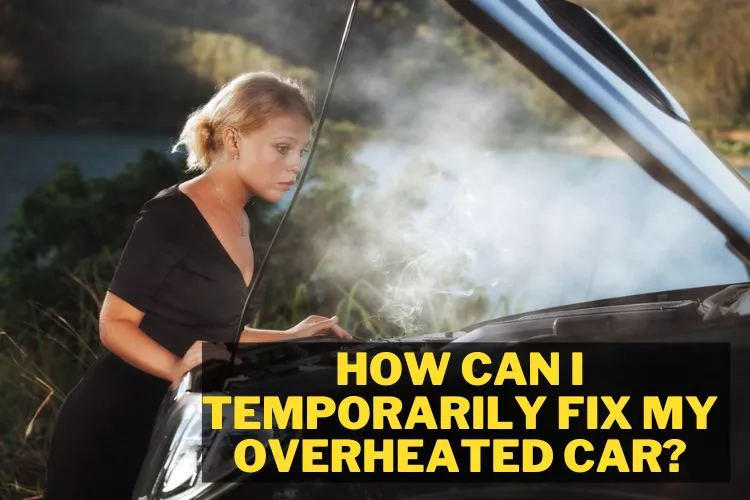
Pullover
Pull over the vehicle and shut down the engine. Wait for 15-20 minutes to allow the engine to cool. Check for coolant and oil levels. Top up the coolant or oil and try to restart. If the vehicle starts and you notice there’s no overheating, then good.
Else, call for roadside assistance if you have opted for it. Or call your regular mechanic and ask for help.
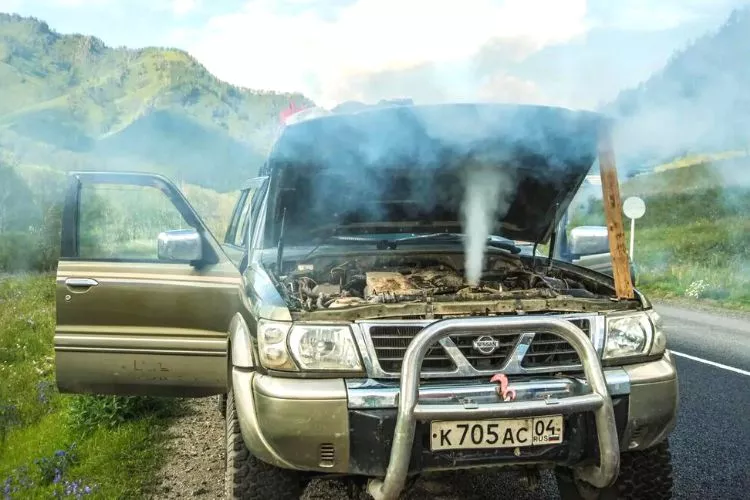
*Caution:
Do not open the hood immediately once you pull over. Let the engine cool down a bit; otherwise, there’s a risk of hot coolant or water gushing out, which may be dangerous for you.
Turn on the heater
Turning on the heater will turn on the fans in the engine. It may help to keep the engine cool. If it doesn’t work, try to connect the fans directly to the battery. But it may be possible by getting help from a professional unless you know how to deal with it.
Drive to the nearest service station
If you can restart the car, locate the nearest service station and drive your car there for a check-up and potential repairs. Ideally, you should call up a tow truck and allow it to drag your car to the station. Because driving a vehicle with an overheated engine may be prone to further damage.
Can I pour water on my engine to cool it down?
It’s not advisable to pour water onto the engine. Sudden changes in the temperature may result in the cracking of the engine block.
How far can I drive my car without coolant?
Driving without coolant is a bad idea and is like deliberately inviting car damage.
What is the fastest way to cool down a car engine?
Immediately shut down the AC and turn on the heater to full blast. Strange as you may find this suggestion, it really works. A substantial amount of heat will be transferred to the car’s cabin, lowering the heat in the engine compartment.
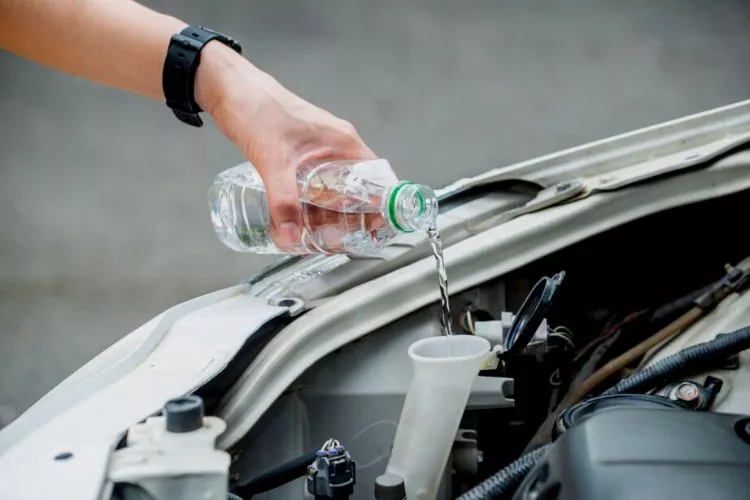
Open all the windows and let fresh air come in. Later pull over to the roadside, shut down the engine and leave the engine to cool. It takes approximately 30 minutes at a standard temperature for a typical engine to cool down.
Conclusion
A lot of complexity is involved for a vehicle to run. The engine and its components undergo rigorous operation for the smooth running of the car. But there are a few reasons that may overheat the car’s engine.
If a car’s engine overheats, it may damage the engine in several ways. It’s crucial to be alert in such a situation and act to avert further damage. Moreover, you need to remain calm and prevent yourself from panicking if your car overheats.
Pulling aside the road and waiting for the engine to cool down is the simplest way you can deal with it. Driving a car after the engine overheats may be risky for the engine. Always consult your professional mechanic if you encounter engine overheats.

